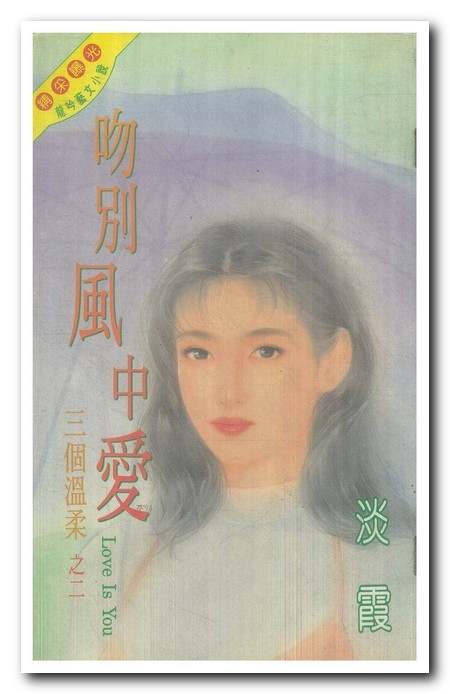the days of my life-第31章
按键盘上方向键 ← 或 → 可快速上下翻页,按键盘上的 Enter 键可回到本书目录页,按键盘上方向键 ↑ 可回到本页顶部!
————未阅读完?加入书签已便下次继续阅读!
Dear Sir; — Can’t you arrange to dine with us at seven o’clock on the 10th of next month? We could talk all round the literary question over a cigar in my study after dinner。 Could you succeed in literature? Certainly up to a certain point: unquestionably up to the point you indicate; though you might never earn as much money as the two novelists you mention; for in that respect they have been singularly fortunate。 But you may not hope to succeed in a day。 You might bee famous in a morning; but you may not entertain the hope of doing so。 You must hope only to succeed by degrees; — by steady work; slow advances; and after several disappointments。 Moderate success in literature is easily attainable by a man of energy; culture; and resoluteness who can afford to work steadily and play a waiting game。 At twenty…one a man is necessarily impatient; at twenty…six a man has neither the excuse of youth nor the excuse of advancing age for impatience。 How I envy you for being only twenty…six。 I am old enough to be your father。 I could not have written as good a novel as Angela’s story when I was twenty…six。 I have already perused your “Cetewayo。” It is a far more difficult thing to interest readers in imaginary persons and incidents than to entertain them with writing about facts and characters in which they are already interested。 It was because I saw you really knew your characters that I urged you to make the most of them。 Do e and see me。
Yours cordially;
John Cordy Jeaffreson。
The following letter from myself to my sister Mary; which she found and returned to me a few years ago; throws some light upon the above:
Ditchingham House: May 5 '1883'。
My dearest Mary; — The enclosed letters may interest you。 I consider Jeaffreson’s very encouraging on the whole; though he is inflicting a lot of extra labour on me。 However; after I have been up for this examination I will go at it; and hope to finish the book in from two to three months。 I do not altogether agree with Mr。 Jeaffreson’s ideas as to changing the end of the book; indeed my own sentiments about it are much the same as those expressed by Miss Barber 'a schoolfellow of my wife’s who was more or less living with us at the time。 She is a sister of the late Marjorie Barber; “Michael Faireless;” the well…known author of “The Road…Mender;” etc。; and afterwards married my brother; John G。 Haggard; R。N。' in the letter that I forward you; because it puts the other side of the question very well。 I wrote and asked Jeaffreson what he meant when he said that I could succeed in literature; and if in his opinion I could hope to pete with men like Payn and Blackmore; and in the very nice letter that he sent me in answer he said that “unquestionably I could succeed to the point I indicated。” This is of course encouraging; but I am not so sure about it。
I am going to dine with him on the 10th; when I shall try to modify his views about changing the end of the book。 。 。 。
To this day I often wonder whether Jeaffreson was right in making me turn my story inside out and give it a happy ending。 My idea was to present the character of a woman already sweet and excellent in mind and body; and to show it being perfected by various mortal trials; till at length all frailties were burnt out of it by the fires of death。 In the second version I continued to carry out this scheme as well as I could; only the final fires through which the heroine had to pass were those of marriage to a not very interesting young man。 I have always found young men — and; if they are to fill the position of heroes; the novel…reader insists that they must be rather young — somewhat difficult to draw。 Young men; at any rate to the male eye; have a painful similarity to each other; whereas woman is of an infinite variety and therefore easier to depict。 With elderly men; such as old Allan Quatermain; to take an instance; the case is different。 With these I have had no trouble; perhaps because from my boyhood my great friends have always been men much older than myself; if I except the instances of Sheil or Brother Basil; and that other friend who died; of whom I have already written。 Now I am reaping the sad fruits of this idiosyncrasy; since nearly all of those to whom I was deeply attached have gone before me; although; thank Heaven! a few still remain; such as Arthur Cochrane; Andrew Lang; and Charles Longman。
My criticism on “Dawn” considered as a whole — that is; so far as I recollect it; for I have not reread the book for many years — is that it ought to have been cut up into several stories。 However; it has pleased; and apparently still continues to please; a vast number of persons; and not long ago I was much amused to see in an article in The Times that at Pekin — or Hong…Kong — it is one of the favourite subjects of study among the Chinese students of English literature。 Perhaps an old aunt of mine; who still lives at the age of nearly a hundred; was right when she declared that the book was too full of “amateur villains。”
However; in due course it appeared in charming type; such as we do not get in novels nowadays; and three nice volumes bound in green; which I admire as I write。 Certain of the reviews of it still remain pasted in a book。 They were not very many nearly thirty years ago; or perhaps; as there were no Press…cutting agencies; one did not see them。 On the whole; however; they seem to have been fairly favourable。 Since 1883 I have read hundreds; if not thousands; of reviews of my books; good; bad; and indifferent; but I can safely say that few if any of them have pleased me more than that which appeared of “Dawn” in The Times。
“Dawn” 'said The Times' is a novel of merit far above the average。 From the first page the story arrests the mind and arouses the expectation。 。 。 。 This is; we repeat; a striking and original novel; breathing an elevated if somewhat exaggerated tone。
I wonder who wrote that notice! Be he living; which is scarcely probable; or dead; I offer him my gratitude。 And yet I know not whether I should be grateful to this kindly critic; since his words; more than any other circumstances; encouraged me to try another novel。
As regards “Dawn” itself; it was more or less of a failure — of course I mean at that time; for in after years it became extraordinarily successful。
One of the most appreciative and indeed enthusiastic readers of this tale at the time was old Mr。 Trubner; whose advice had encouraged me to make the attempt of its writing。 Indeed I was told by one of his relatives that he continued its perusal to within a few hours of his actual death。 Whether he finished it or not I cannot now remember。 Scoffers might say that it finished him。
The new novel upon which I embarked ultimately appeared under the title of “The Witch’s Head。” Failing to find any magazine that would undertake it serially; in the end I published it with Messrs。 Hurst and Blackett on practically the same terms as they had offered me for “Dawn。” Although; except for the African part; it is not in my opinion so good a story as “Dawn;” it was extremely well received and within certain limits very successful。 Indeed; some of the reviews were quite enthusiastic; although; as I may here remark; I was unacquainted with a single person who made a business of reviewing fiction; or indeed with anyone connected with the Press。 Never did a writer begin less equipped with friends who were likely to be able to do him a good turn。 All I could do was to cast my fictional bread upon the literary waters。
The notices of “The Witch’s Head” naturally delighted me; indeed; after the lapse of more than a quarter of a century they still make pleasant reading。 Also they caused the book to go quickly out of print and to be pirated in America。 But this success would not tempt my publishers to reissue it in a cheaper form; a venture that they thought too risky。 I hawked the work about and eventually found some other publishers — who have long since ceased to publish — who agreed to bring it and “Dawn” out each in a two…shilling edition; and nobly promised me one…third of the profits。 But in that generous agreement was a little clause that afterwards nearly proved my ruin。 It bound me to allow this firm to republish any other novel I might write during the five following years; in the same form and on the same terms。 To such a document as this in my ignorance — there was no Authors’ Society in those days — did I set my hand; with results that shall be told later。 These; however; did not alarm me at the time; if I really considered them; as; having then passed my final examination for the Bar without any assistance in the way of coaching; I determined to abandon the writing of fiction and devote myself entirely to my profession。
Three works had I produced; namely; one history and two long novels。 The history had cost me 50 pounds to publish; and for the two novels I had received exactly the same sum in all; in short; the returns were at that time nothing; and this for books that have since sold by the ten thousand copies; not to mention pirated editions。 Thus I find that; during six months of the present year; 4204 copies of “Dawn” and 5656 copies of “The Witch’s Head” were sold in a cheap edition; besides others at a higher price; which; as these works were written about twenty…eight years ago; is not a total to be despised。
To return: had it not been for a curious chance my literary efforts would have ended with the publication of “The Witch’s Head;” and probably by now my labours at the Bar in this or some other land would almost have obliterated them from my memory。 But; as it happened; I read in one of the weekly papers a notice of Stevenson’s “Treasure Island” so laudatory that I procured and studied that work; and was impelled by its perusal to try to write a book for boys。
Outside of this matter of my attempts at fiction I have little to add as to our life at Ditchingham before we migrated to London when I began to practise at the Bar。 We lived very quietly; for we were not well off; and an estate which used to produce sufficient to support a country place of the smaller sort and those who dwelt on it; began to show greatly lessened returns。 The bad years were upon us; and rents fell rapidly; moreover the repairs required were legion。 Also; from one cause; and another; little or nothing came out of the African property; which shared in the depression that followed on the giving back of the Transvaal。
Under these circumstances; outside members of my own family our visitors were few; and in the main we had to rely on ourselves and our little children for pany。 I should add that in 1884 another daughter was born to us; who is now Mrs。 Cheyne。 She was named Dorothy; after the heroine of “The Witch’s Head;” or in full; Sybil Dorothy Rider。 My recollection of this period is that it was rather lonely; at any rate for me; since my friends were African; and Africa was far away。 However; I worked very hard; as indeed I have done without intermission since I was a rather idle boy at school; both at writing and the study of the Law。 Between the intervals of work I took walks with a dear old bulldog I had; named Caesar; who appears in “Dawn;” and a tall Kaffir stick made of the black and white umzimbeet wood; which I still have; that reminded me of Africa。 At times; too; I got a day’s shooting on our own land or elsewhere。
However; I had so many resources in my own mind; and so much more to do than I could possibly pass; that all these matters troubled me not at all。 I was determined to make a success in the world in one way or another; and that of a sort which would cause my name to be remembered for long after I had departed therefrom; and my difficulty was to discover in which way this could best be done — in short; to search out the line of least resistance。 So I possessed my soul in patience and worked and worked and worked。 Often I wonder what estimate those who lived about me; and whom I met from time to time; formed of the studious young man who was understood to have been somewhere in Africa。 I imagine that it was not plimentary; for if I understood them they did not understand me。
Some pleasures I had; however。 My journeys to London to eat my dinners at Lincoln’s Inn were a change。 So were the examinations; though these I faced with fear and trembling; having read up for them entirely by myself; which I imagine few people do。 Occasionally some of my old African friends came to see me when they were on visits to England。 Thus Sir Theophilus Shepstone came; and with what delight did I wele him! Here is an extract from a letter of his; in which he alludes to his proposed visit; dated from London on May 26; 1883:
I have only just received your note of the 23rd。 I see that you sent it to the Colonial Office; but I have not yet been there; for I don’t think they care much for me; except perhaps a few personal friends; and with the same exception the feeling is mutual as far as I am concerned。 I think I shall make my number there about noon on Monday for the purpose of seeing those I care for; but for nothing else。 I shall be very glad indeed to have a look at you again。 How is your good wife? I hope well and strong。
Another letter from Sir Theophilus in this year has some allusions of





